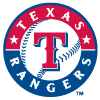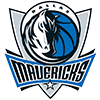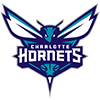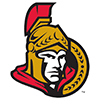Historically, drafting rookies in fantasy basketball is a fickle game. But in recent years, a number of first-year players have grown into strong fantasy assets in Year 1. Luka Doncic, Trae Young, Deandre Ayton and Jaren Jackson -- among others -- were all impact players last season, and the 2019 Draft yielded another crop of talented rookies.
Below are seven rookies to consider targeting in drafts this season, as well as a handful of other prospects worth monitoring:
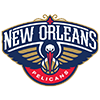 Zion Williamson, Pelicans
Zion Williamson, Pelicans
Even in a golden age of NBA talent, Williamson's entrance to the league will be marked with more fanfare than perhaps any rookie since LeBron James. Already a one-name star before he turned 17, Williamson was the no-brainer of all no-brainers for the Pelicans with the No. 1 pick, and he'll be the focal point of the franchise's impromptu rebuild after the Anthony Davis trade.
As a freshman at Duke, Williamson was a captivating combination of size, strength and athleticism, pounding the ACC into submission to the tune of 22.6 points, 8.9 rebounds, 2.1 assists, 1.8 blocks and 2.1 steals per game. More impressive yet, Williamson shot 68 percent from the field, including 75 percent from two-point range.
Of course, that incredible level of efficiency isn't sustainable at the NBA level, but Williamson projects as a top-50 -- and perhaps much higher -- fantasy asset right away. The biggest concerns are his free throw percentage (64% at Duke) and shaky three-point shooting, but Williamson should
Historically, drafting rookies in fantasy basketball is a fickle game. But in recent years, a number of first-year players have grown into strong fantasy assets in Year 1. Luka Doncic, Trae Young, Deandre Ayton and Jaren Jackson -- among others -- were all impact players last season, and the 2019 Draft yielded another crop of talented rookies.
Below are seven rookies to consider targeting in drafts this season, as well as a handful of other prospects worth monitoring:
 Zion Williamson, Pelicans
Zion Williamson, Pelicans
Even in a golden age of NBA talent, Williamson's entrance to the league will be marked with more fanfare than perhaps any rookie since LeBron James. Already a one-name star before he turned 17, Williamson was the no-brainer of all no-brainers for the Pelicans with the No. 1 pick, and he'll be the focal point of the franchise's impromptu rebuild after the Anthony Davis trade.
As a freshman at Duke, Williamson was a captivating combination of size, strength and athleticism, pounding the ACC into submission to the tune of 22.6 points, 8.9 rebounds, 2.1 assists, 1.8 blocks and 2.1 steals per game. More impressive yet, Williamson shot 68 percent from the field, including 75 percent from two-point range.
Of course, that incredible level of efficiency isn't sustainable at the NBA level, but Williamson projects as a top-50 -- and perhaps much higher -- fantasy asset right away. The biggest concerns are his free throw percentage (64% at Duke) and shaky three-point shooting, but Williamson should be a strong source of points, rebounds and, especially, defensive statistics as a rookie. Unlike most No.1 overall picks, however, Williamson will join a formidable roster in New Orleans, so the Pelicans likely won't need to lean on the 19-year-old for heavy usage.
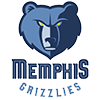 Ja Morant, Grizzlies
Ja Morant, Grizzlies
If you're looking for this year's Trae Young, Morant is probably the best bet. A dynamic point guard at the college level, Morant averaged 24.5 points and 10.0 assists per game at Murray State last season, leading the Racers to the NCAA Tournament and a first-round upset of Marquette. Like Young, Morant thrives as a playmaker in transition, and he improved his outside accuracy as a sophomore, hitting at better than a 36 percent clip.
Morant also faces a lot of the same questions Young did coming out of Oklahoma. Both players have slight builds, and while Morant was a better defender at the college level, he'll need to add weight to his 175-pound frame to hold up over the course of an 82-game season. Morant will also have to limit turnovers after committing 5.2 per game at Murray State last season -- more than double his average as a freshman.
But even with a few question marks, Morant is firmly the No. 2 fantasy rookie behind Williamson, and he'll enter an excellent basketball situation in Memphis, where he'll team with Jaren Jackson, Jr. on a team that knows its place in the league hierarchy. A lack of postseason expectations should mean a long leash for Morant, who, like Young, will probably suffer through the typical ups and downs of being a young point guard -- Morant turned 20 in August -- in the modern NBA. Turnovers and field goal percentage will be a concern, but Morant has the potential to be a high-level assists producer right away, while also offering points, rebounds, steals, and threes.
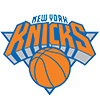 RJ Barrett, Knicks
RJ Barrett, Knicks
New York may have missed out on the Zion sweepstakes, but landing Barrett at No. 3 is a strong consolation prize. After a productive-yet-inconsistent freshman season at Duke, he'll have to prove he can shoot the three and distribute in the NBA, but Barrett carries considerable upside as a well-built, 6-7 athlete who can handle the ball.
From day one, Barrett projects as a high-usage player who projects to rack up points, rebounds and assists at a strong rate. However, he generated very little defensive production at Duke and shot just 66.5 percent from the free throw line. He'll almost certainly be a drag on percentages, but Barrett's counting-stat production should boost his value in points formats.
All indications are that Barrett will start right away in New York, but the Knicks stocked up on depth this summer and apparently intend to make a run at the postseason, so it's unclear if Barrett will truly be handed the keys to the offense in Year 1. He'll likely share primary ball-handling duties with Dennis Smith and Elfrid Payton, but given his size, Barrett can swing between three positions.
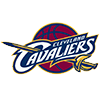 Darius Garland, Cavaliers
Darius Garland, Cavaliers
Five games at Vanderbilt were enough to convince the Cavs that Garland was worth taking with the fifth overall pick. After draftingCollin Sexton a year ago, Cleveland has some sorting out to do in the backcourt, but Garland figures to get first crack at the starting point guard job. Either way, the pair will spend plenty of time on the court together, and Garland could easily be among the rookie minute-leaders for a Cavs team firmly entrenched in a rebuild.
Given the small collegiate sample, projecting Garland is mostly a guessing game, but he's a good three-point shooter with a better feel for the game than Sexton, who managed only 3.0 assists in 31.8 minutes per game last season. Another guard with a slight frame, Garland will almost certainly be a minus on the defensive end, so the bulk of his value will come via points, assists, and threes.
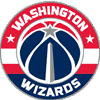 Rui Hachimura, Wizards
Rui Hachimura, Wizards
The Gonzaga product was somewhat of a surprise pick at No. 9 overall, but he fell into one of the best situations -- opportunity-wise -- of any rookie in the 2019 class. For now at least, the Wizards still have Bradley Beal, but beyond the two-time All-Star, the cupboard is extremely bare.
Following a promising 2018-19 season, Thomas Bryant will start at center, and Hachimura will have a decent chance to start next to him up front. Offseason addition Davis Bertans is more experienced and a superior floor-spacer, but in a year in which Washington likely won't be competitive, developing Hachimura could emerge as a greater priority as the season goes on.
While Hachimura is still fairly raw, he had some encouraging moments in summer league and the FIBA World Cup. If the minutes are there -- which, by default, they almost have to be -- Hachimura could emerge as a source of points and rebounds with a solid field goal percentage and some three-pointers. While he wasn't an elite shot-blocker at the college level, Hachimura was more aggressive on that end in summer league, so there's reason to believe he'll eventually contribute in that category, as well.
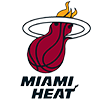 Tyler Herro, Heat
Tyler Herro, Heat
One of the breakouts in summer league, Herro looks like a potential steal in the late-lottery, and he projects to play a key role for Miami as a rookie. Herro will likely begin the year as the backup to Dion Waiters, but the Heat have few options behind that tandem after shipping Josh Richardson to Philadelphia as part of the Jimmy Butler sign-and-trade.
Realistically, Herro's profile as a score-first off-guard doesn't lend itself to high-end fantasy value, but Herro could eventually be a target for owners in need of efficient, high-volume threes. While he's not a great defender, Herro averaged more than a steal per game at Kentucky, and he should be among the league leaders in free throw percentage (93.5% FT last season).
 Brandon Clarke, Grizzlies
Brandon Clarke, Grizzlies
Outside of the top three picks, Clarke is by far the most intriguing fantasy rookie. An older player who turns 23 a month before the season begins, Clarke was an efficiency monster at Gonzaga, hitting 68.7 percent of his field goals, while adding 16.9 points, 8.6 rebounds, 1.9 assists, 3.2 blocks, and 1.2 steals per game.
Clarke's jumper is still very much a work in progress, and he hit only six threes in 98 college games, but the defensive numbers are what jump off the page. If he can provide even 60 percent of that production, he'll have a great chance to wind up as a top-150 player by season's end. The reigning MVP in Las Vegas put up 14.7 points, 9.8 rebounds, 1.8 blocks and went 5-of-9 from beyond the arc in six summer league contests.
In terms of team context, Memphis has a number of mid-level forwards on the roster, but developing Clarke should be a priority for the rebuilding franchise. Power forward is probably his most natural spot in the NBA, but Clarke will spend time at both the three and the four, and he could even moonlight as a small-ball center.
Other names to watch:
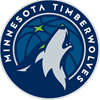 Jarrett Culver, Timberwolves
Jarrett Culver, Timberwolves
An all-around star at Texas Tech, Culver will have to become a better three-point shooter, but if he can win the starting small forward spot, there's a chance he could climb to relevance in some leagues. As a sophomore, Culver averaged 18.5 points, 6.4 rebounds, 3.7 assists and 1.5 steals, though shot just 30.4 percent from deep and 70.7 percent at the line.
 Jaxson Hayes, Pelicans
Jaxson Hayes, Pelicans
He may be the center of the future, but Hayes will likely have to wait his turn for at least a year after the Pelicans brought in Derrick Favors this summer. A raw prospect out of Texas, Hayes fits the high-flying, rim-running archetype to a T. He converted nearly 73 percent of his field goal attempts as a freshman, and while he has a soft touch at the free throw line, Hayes doesn't offer anything outside of the restricted area. Down the road, the 19-year-old projects as a valuable rebounder and shot-blocker who should be among the perennial leaders in field goal percentage.
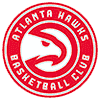 Cam Reddish and De'Andre Hunter, Hawks
Cam Reddish and De'Andre Hunter, Hawks
Atlanta traded up on draft night to get two shots at landing an impact wing in the top 10, and the Hawks ended up with a pair of very different prospects. In Hunter, the Hawks get one of the best defenders in the country last season and a player with a relatively high floor. He'll turn 22 in December, however, and hasn't flashed a ton of skill on the offensive end beyond efficient, relatively-low-volume three-point shooting. Hunter projects as a solid three-and-D player, but he wasn't a high-volume steals or blocks guy at the college level.
After a disappointing year as the third option at Duke, Reddish is the riskier of the two, but his upside has engendered comparisons to Tracy McGrady and Paul George. At some point, Reddish will actually have to produce, but his measurables are intriguing, and the Hawks should give both he and Hunter plenty of opportunity to earn minutes as rookies. Nonetheless, neither player should be drafted in most formats.
 Nickeil Alexander-Walker, Pelicans
Nickeil Alexander-Walker, Pelicans
A dynamic scorer at the college level, Alexander-Walker was another standout at summer league, where he posted 24.3 points, 6.0 assists, 4.8 rebounds, 2.8 steals and 3.3 made threes across four contests. He'll probably need an injury or two to work his way into a fantasy-relevant role, but the Virginia Tech product is a name to keep on your radar in deep leagues and dynasties -- especially if Lonzo Ball or Jrue Holiday suffer a major injury.
 Admiral Schofield, Wizards
Admiral Schofield, Wizards
In all likelihood, Schofield will be a fantasy afterthought this season, but he bears mentioning because of the Wizards' lack of depth. Built like an NFL defensive end, Schofield is NBA-ready, from a physical perspective, and could see time off the bench at three positions if he's able to surmount the likes of Isaac Bonga and Jemerrio Jones on the depth chart.
 Michael Porter Jr., Nuggets
Michael Porter Jr., Nuggets
While he was taken with the 14th pick in 2018, Porter is technically considered a rookie after failing to play a single minute last season while recovering from a back injury. Expectations remain high for the former top recruit, but even if he can stay healthy, the path to consistent minutes on a deep Nuggets team might not be there in 2019-20.
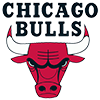 Coby White, Bulls
Coby White, Bulls
Before the Bulls signed Tomas Satoransky, it looked as though White would have a chance to compete with Kris Dunn for the starting job. While that's now unlikely, White still figures to factor into the rotation as a rookie after a dynamic freshman season at North Carolina. White struggled to find his shot in summer league, but as the Bulls' potential point guard of the future, he makes for a compelling add in dynasty formats.













